
There has been much said of the roles of traditional and electronic navigation techniques in recent years. For my own part I consider GPS chart plotters to be the tool to tell you where you are and where you are heading, and paper charts, along with almanacs and tidal stream atlases, are the essential tools for planning. Having spent much of my life learning navigation, not only at sea but on land and in the air, I thought I had everything needed in my navigational toolbox. However, last year I added something new.
In May my wife Sarah and I began a 2,142-mile cruise from Devon to Scotland, returning in September. We sailed aboard Mollymawk, our Pan Oceanic 38, a cutter-rigged sloop with a pilot house and eminently suited for such a voyage. An old friend joined us as far as Strangford Lough and, as a ‘superannuated navigation officer’, John showed us a little of one of the tools he used in the Royal Navy while navigating a frigate and a nuclear submarine. He learnt the basics on two navigation courses, developing them at sea, and was therefore very surprised that I did not employ what he considered to be a standard planning method. We therefore had to improvise at the beginning as I had not shipped any graph paper.
The method John showed me is very straightforward, easy to remember, and indispensable for planning any passages where there are time constraints. Essentially it is the use of a distance-time graph, familiar to anyone from schooldays and also to sailors who are ex Royal Navy, but it is certainly not part of any RYA course that I have undertaken. The real trick is that it allows you to see how a passage is progressing and gives you the information you need to make sound and timely decisions without having to think too hard.
1 Creating the graph
This story is from the September 2020 edition of Yachting Monthly.
Start your 7-day Magzter GOLD free trial to access thousands of curated premium stories, and 9,000+ magazines and newspapers.
Already a subscriber ? Sign In
This story is from the September 2020 edition of Yachting Monthly.
Start your 7-day Magzter GOLD free trial to access thousands of curated premium stories, and 9,000+ magazines and newspapers.
Already a subscriber? Sign In
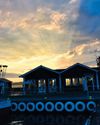
Midsummer on Hanö
This wonderful little island in the south-east of Sweden is a real gem off the beaten track
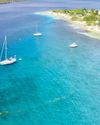
ADVENTURE SAILING TO HAITI
After spending two months in the Dominican Republic, Andy Brown sails west to Haïti bringing medical and school supplies to the town of Mole Saint Nicholas
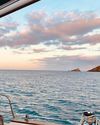
In celebration of bad sailing
New owner Monty Halls tests his sailing skills with his family aboard their Colvic 34 ketch, Sobek. A recently qualified Day Skipper, Monty faces a few unexpected challenges...

Winter brings excitement and opportunity
Oddity’s double glazing, insulation and heating create a warm, homely environment as I bash out this column.
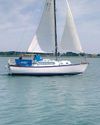
ADVENTURE MAISIE GOES TO GOES
To depart or not to depart? That is the question. Is it safer to stay, or suffer the wind and weather of a rough North Sea?
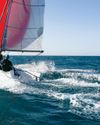
'MAYDAY, GRANDAD OVERBOARD!'
When David Richards and his grandson Henry went out racing from lowey, they didn't expect their sail to end with a lifeboat rescue
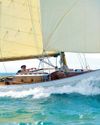
VERTUE
For a 25-footer, the Vertue has a huge reputation and has conquered every ocean. So what makes this little boat quite such an enduring success? Nic Compton finds out
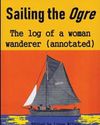
Sailing siblings
Mabel Stock, her brother Ralph, a friend Steve and an unnamed paying passenger passed through the Panama Canal in December 1919 on the sturdy Norwegian cutter Ogre. They were towed to a quiet anchorage in Balboa away from the boat traffic but within rowing distance of the shore.
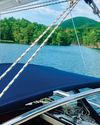
TECHNICAL MAINSAIL MODIFICATIONS
Safety and performance improved hugely when Mike Reynolds reduced the size of his mainsail and re-configured the systems controlling it
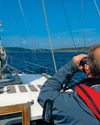
PILOTAGE DONE PROPERLY
Chartplotters are an amazing aid, but can detract from your real-world pilotage if not used with caution, says Justin Morton